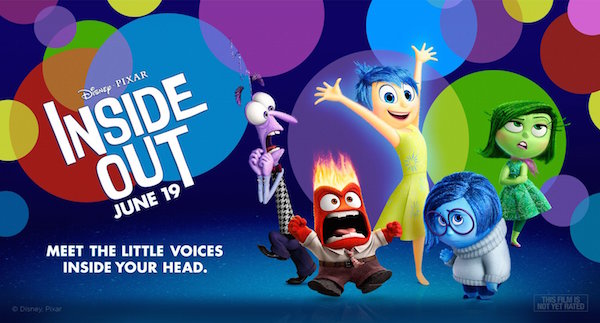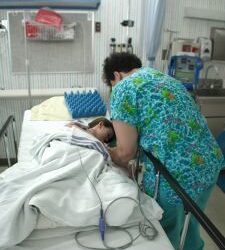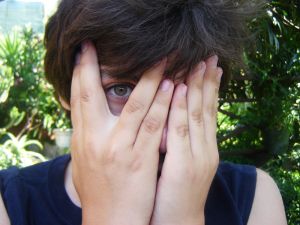Why Special Needs Parents with PTSD Should Watch Inside Out

#1 Special Needs Parents with PTSD Should Meet the Little Voices in Their Heads
#2 Special Needs Parents with PTSD Should Know They Are Not Alone
The main character in this movie isn’t a special needs parents or a child with special needs. The main character is a little girl going through a rough patch growing up, as this summary shows:
Growing up can be a bumpy road, and it’s no exception for Riley, who is uprooted from her Midwest life when her father starts a new job in San Francisco. Like all of us, Riley is guided by her emotions – Joy (Amy Poehler), Fear (Bill Hader), Anger (Lewis Black), Disgust (Mindy Kaling), and Sadness (Phyllis Smith). The emotions live in Headquarters, the control center inside Riley’s mind, where they help advise her through everyday life. As Riley and her emotions struggle to adjust to a new life in San Francisco, turmoil ensues in Headquarters. Although Joy, Riley’s main and most important emotion, tries to keep things positive, the emotions conflict on how best to navigate a new city, house and school.
Kids who don’t have good support systems are more likely to be traumatized by rough patches in childhood than those who do. The same can be said for special needs parents who don’t have support systems. Or who experience repeated traumas as they care for their kids and make difficult decisions about care and treatments. Inside Out shows that all of us experience trauma. We are not alone in the constant struggle to manage our emotions and move forward when life is hard.
#3 Special Needs Parents Should Laugh More
As was mentioned earlier, trauma and PTSD are heavy subjects. Many special needs parents with PTSD live in this place day after day and find it hard to laugh. But if the trailer is any indication, Inside Out will make us laugh and learn and find hope. Take a look and see what you think?
So, are you laughing yet? Do you plan on going to the movie? Once you’ve seen in, stop by and leave a comment. I’d love to hear what you think about it.
Part 2: Special Needs Parents and PTSD–What About You Mom?
Part 5: PTSD in Parents–Moving from Negative to Positive
Part 6: PTSD and Special Needs Parents: 5 Ways to Prepare for Healing
Part 7: PTSD in Parents of Kids with Special Needs: Visualization as a Coping Tool
Part 8: Newborns Feel Pain: The Headline that Almost Triggered My PTSD
Part 10: Why Kids with PTSD Need Mentally Healthy Parents
Part 11: PTSD and Special Needs Parents: Calling it Like It Is
By Jolene
Jolene Philo is the author of the Different Dream series for parents of kids with special needs. She speaks at parenting and special needs conferences around the country. She’s also the creator and host of the Different Dream website. Sharing Love Abundantly With Special Needs Families: The 5 Love Languages® for Parents Raising Children with Disabilities, which she co-authored with Dr. Gary Chapman, was released in August of 2019 and is available at local bookstores, their bookstore website, and at Amazon.
2 Comments
Submit a Comment
Subscribe for Updates from Jolene
Related Posts
Linking PTSD and Medical Trauma, Part 2
PTSD and medical trauma are linked in children who live through medical procedures & surgeries. This post offers parents can use to help their kids.
Linking PTSD and Medical Trauma, Part 1
The link between PTSD and medical trauma is a reality for children and can be exacerbated by these 4 risk factors.
How to Trauma Proof Your Child
How can parents trauma proof their kids? These books by Levine and Kline give step-by-step instructions about what to do.






The Academy for Precision Learning (http://www.aplschool.org) is a K-12 school that provides a nurturing, inclusive, and individualized learning experience for neurodiverse students. APL offers targeted opportunities that promote the academic achievement and social development of students who benefit from a smaller, supportive learning environment. Students are engaged in developmentally appropriate, data-informed, individualized experiences that put them on a path to achieving their greatest potential. APL meets our students where they are at, supporting each student to build on their unique strengths to become a curious and engaged life-long learner who celebrates diversity, practices self-advocacy, and generates impact in their community.
Interesting comparison! I’ll have to watch the movie!